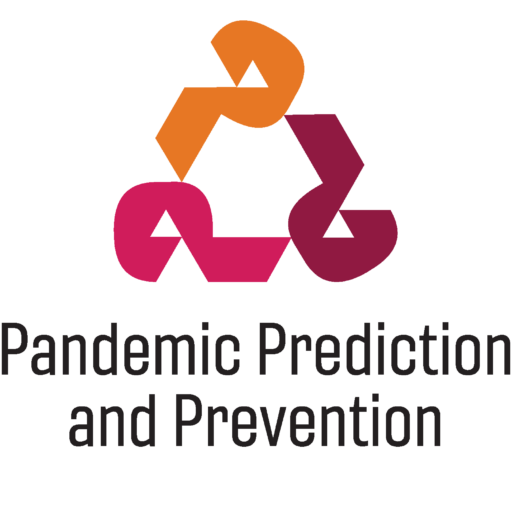
Most emerging human viral diseases are zoonotic (originating from animals). When zoonotic events result in pandemics, their medical and societal consequences are immense. Notably, COVID-19 has led to global disruption of human life, highlighting several important scientific, societal, and ethical challenges.
Meeting these demands inspires our work on the grand challenge of Pandemic Prediction and Prevention (PPP). Our vision is to reach an aspirational destination: A world where we accurately foresee pandemics and proactively minimize their impact.
Our mission is to forecast and control future viral pandemics by addressing the grand challenge of uncovering the genetic, molecular, cellular, and chemical rules of life underlying virus-host interactions through community-based and ethically grounded research. We seek to educate and train a new generation of scientists with transformative technical and professional skills to form convergent teams that can protect and empower humans by anticipating future outbreaks and preventing them from becoming pandemics. Skill-building practices in connection, communication, and collaboration will prepare team members for effective engagement with communities. Community members will play an integral role in designing and implementing policy and communication strategies.
VT faculty, scientists, graduate, and undergraduate students in collaboration with leading researchers at other universities and partners will converge around four core themes:
Theme Jump: Create machine learning (ML) methods to predict mutations that will enable a virus to shift from an animal host and adapt to infect humans.
Theme Replicate: Use organoid engineering to test human susceptibility to viruses with pandemic potential and understand the life cycle of a virus to devise ways to interrupt its replication.
Theme Spread: Develop models to predict how a virus spreads from one person to another and across populations with the goal of devising methods to prevent transmission.
Theme Empower: Ethically engage vulnerable communities to equitably shape and effectively communicate pandemic science.
By design, we will make independent progress on all four themes while also supporting exchange of ideas.